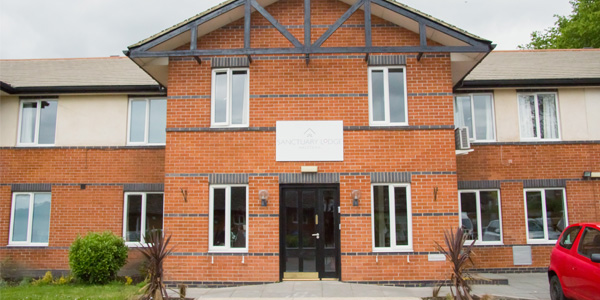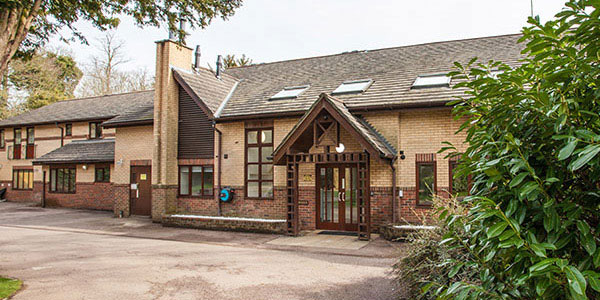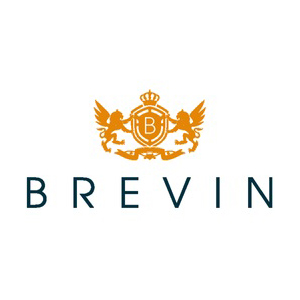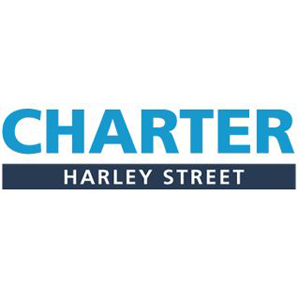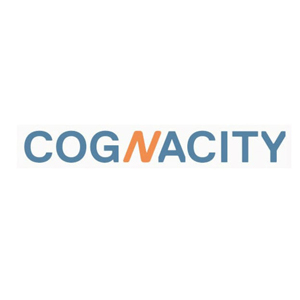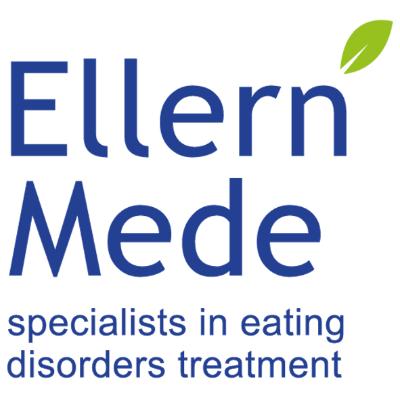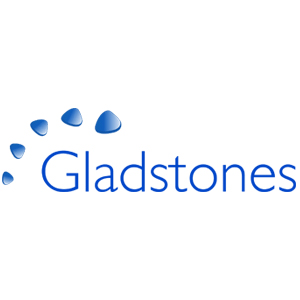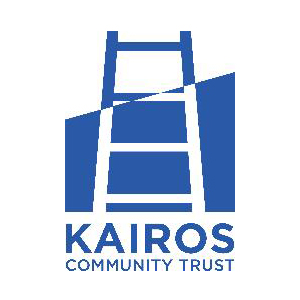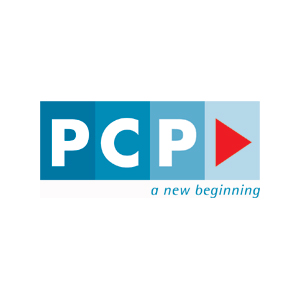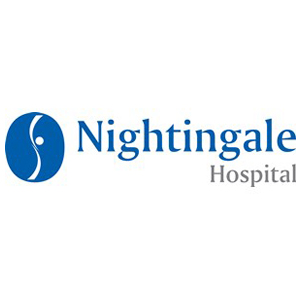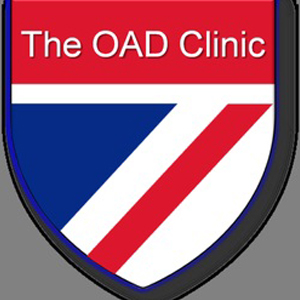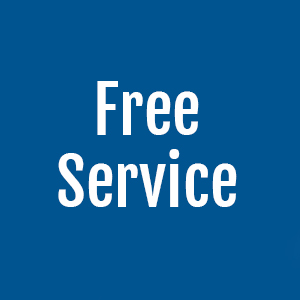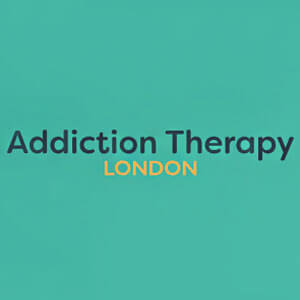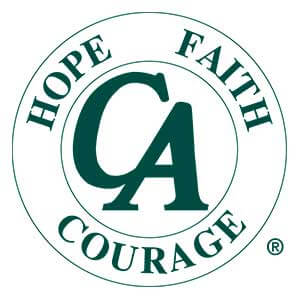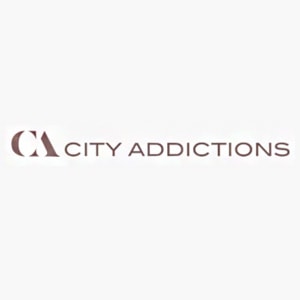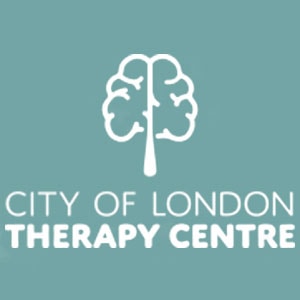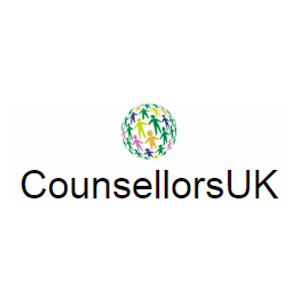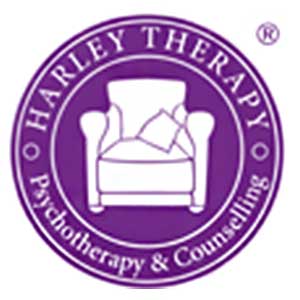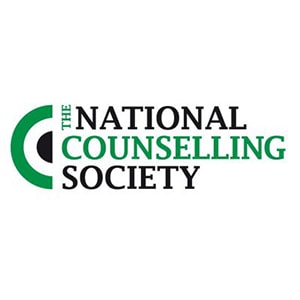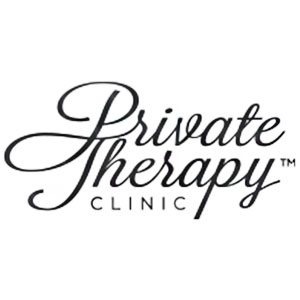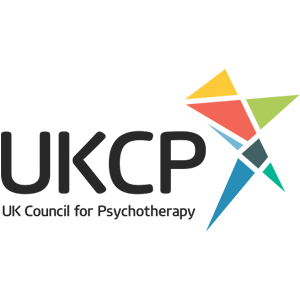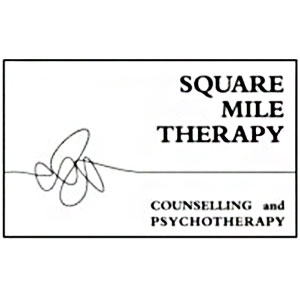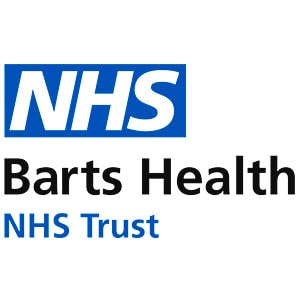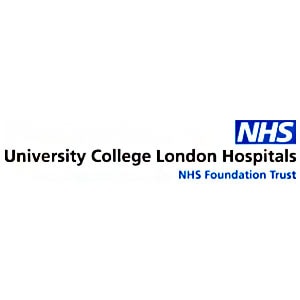Alcohol & Drug Rehab In London
Addiction Helper offers alcohol and drug rehab including medical detox, in London, which is the capital City of England, and the largest city and metropolitan area in the United Kingdom. London, England, is in the South East of England surrounded by the home counties and lies on the River Thames. If you are looking for alcohol rehab in London or Drug rehab in London we can help you find local treatment near you.
At the centre of London is the historic district named the City of London which is a county and city, also known as the Square Mile. In the Inner London area, you will also find another City, the City of Westminster, which is both a borough and a city. If you are in need of detoxification and rehabilitation for alcohol and drug misuse, abuse, dependence or full-blown addiction, we can treat you in London.
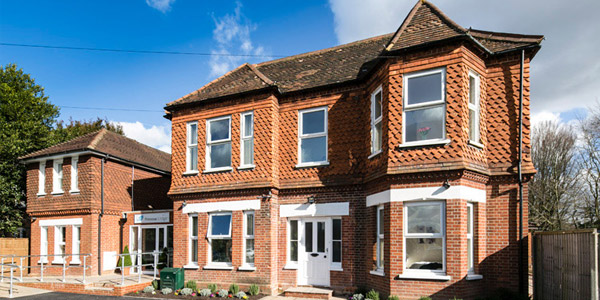
At Primrose Lodge we genuinely care that our patients make a full recovery …
- Private
- Holistic Treatment
- Onsite gym
- Residential
Featured Rehabs
Sanctuary Lodge is a state of the art detox and rehabilitation facility, se…
Liberty House Clinic is a fully furbished detox and rehabilitation facility…
Banbury Lodge is a private UKAT rehab facility based in Banbury, Oxfordshir…
Finding Treatment near London
-
- Private
- Outpatient Option
-
- Gambling
- Outpatient Option
- Eating Disorder
-
- Gambling
- Outpatient Option
- Eating Disorder
-
- Eating Disorder
- Outpatient Option
- Eating Disorder
-
Ellern Mede Ridgeway
The Ridgeway
Mill Hill
NW7 4HX0 review- Eating Disorder
- Outpatient Option
- Eating Disorder
-
- Non 12 Step
- CBT
- Holistic Treatment
- Residential
-
- 12 Step
- Outpatient Option
- Holistic Treatment
- Residential
-
- 12 Step
- Outpatient Option
- Holistic Treatment
- Residential
-
- 12 Step
- Outpatient Option
- Holistic Treatment
- Residential
-
The John Kitchen Centre,
22 Linden Grove,
Nunhead,
SE15 3LF0 review- 12 Step
- Fully Residential
- Holistic Treatment
- Residential
-
- Trauma Therapy
- Family Workshops
- Outpatient Option
- Residential
-
- Residential
- 12 Step
- Dual Diagnosis
- Residential
-
- Drugs & Alcohol
- Dual Diagnosis
- Residential
- Depression
-
- Drugs & Alcohol
- Eating Disorder
- Gambling
- Outpatient Option
-
- Private
- Outpatient Option
- Gambling
- Outpatient Option
- Load More
-
- Private
- Outpatient Option
- Gambling
- Outpatient Option
-
- Private
- Outpatient Option
- Gambling
- Outpatient Option
-
- 12 Step
- Group Setting
- Free
- Outpatient
-
- 12 Step
- Group Setting
- Free
- Outpatient
-
- 12 Step
- Group Setting
- Free
- Outpatient
-
- 12 Step
- Group Setting
- Free
- Outpatient
-
- 12 Step
- Group Setting
- Free
- Outpatient
-
- 12 Step
- Group Setting
- Free
- Outpatient
-
- 12 Step
- Group Setting
- Free
- Outpatient
-
- 12 Step
- Group Setting
- Free
- Outpatient
-
- 12 Step
- Group Setting
- Free
- Outpatient
-
- 12 Step
- Group Setting
- Free
- Outpatient
-
- 12 Step
- Group Setting
- Free
- Outpatient
-
- 12 Step
- Group Setting
- Free
- Outpatient
-
- 12 Step
- Group Setting
- Free
- Outpatient
-
- 12 Step
- Group Setting
- Free
- Outpatient
-
- 12 Step
- Group Setting
- Free
- Outpatient
-
- 12 Step
- Group Setting
- Free
- Outpatient
-
- 12 Step
- Group Setting
- Free
- Outpatient
-
- 12 Step
- Group Setting
- Free
- Outpatient
-
- 12 Step
- Group Setting
- Free
- Outpatient
-
- 12 Step
- Group Setting
- Free
- Outpatient
-
- 12 Step
- Group Setting
- Free
- Outpatient
-
Staff Canteen (behind Chapel),
Bethlem Royal Hospital,
Monks Orchard Rd
BR3 3BX0 review- 12 Step
- Group Setting
- Free
- Outpatient
-
- 12 Step
- Group Setting
- Free
- Outpatient
-
- 12 Step
- Group Setting
- Free
- Outpatient
-
- 12 Step
- Group Setting
- Free
- Outpatient
-
- 12 Step
- Group Setting
- Free
- Outpatient
-
- 12 Step
- Group Setting
- Free
- Outpatient
-
- 12 Step
- Group Setting
- Free
- Outpatient
-
- 12 Step
- Group Setting
- Free
- Outpatient
-
Aurora Project Lambeth,
140 Stockwell Rd
(the door is on Cambermere Rd)
SW9 9TQ0 review- 12 Step
- Group Setting
- Free
- Outpatient
-
- 12 Step
- Group Setting
- Free
- Outpatient
-
- 12 Step
- Group Setting
- Free
- Outpatient
-
- 12 Step
- Group Setting
- Free
- Outpatient
-
We Are With You (Formerly AddAction) Brent,
97 Cobbold Rd, Willesden
NW10 9SU0 review- 12 Step
- Group Setting
- Free
- Outpatient
-
- 12 Step
- Group Setting
- Free
- Outpatient
-
- 12 Step
- Group Setting
- Free
- Outpatient
-
- 12 Step
- Group Setting
- Free
- Outpatient
-
- 12 Step
- Group Setting
- Free
- Outpatient
-
- 12 Step
- Group Setting
- Free
- Outpatient
-
- 12 Step
- Group Setting
- Free
- Outpatient
-
- 12 Step
- Group Setting
- Free
- Outpatient
-
- 12 Step
- Group Setting
- Free
- Outpatient
-
- 12 Step
- Group Setting
- Free
- Outpatient
-
35 London Road
(Entrance via front door BDAS building)
35 London Road.
BR1 1DG0 review- 12 Step
- Group Setting
- Free
- Outpatient
-
Multi-Purpose Rm,
Ground Floor (left at reception), Hillingdon Hospital Mental Health Unit, 3-4
UB8 1QW0 review- 12 Step
- Group Setting
- Free
- Outpatient
-
- 12 Step
- Group Setting
- Free
- Outpatient
-
- 12 Step
- Group Setting
- Free
- Outpatient
-
- 12 Step
- Group Setting
- Free
- Outpatient
-
- 12 Step
- Group Setting
- Free
- Outpatient
-
- 12 Step
- Group Setting
- Free
- Outpatient
-
- 12 Step
- Group Setting
- Free
- Outpatient
-
Clarence Hall, Hawley Rd,
Bradfield Estate
(opp hairdressers and Hawley School).
NW1 8RN0 review- 12 Step
- Group Setting
- Free
- Outpatient
-
- 12 Step
- Group Setting
- Free
- Outpatient
-
- 12 Step
- Group Setting
- Free
- Outpatient
-
- 12 Step
- Group Setting
- Free
- Outpatient
-
- 12 Step
- Group Setting
- Free
- Outpatient
-
- 12 Step
- Group Setting
- Free
- Outpatient
-
- 12 Step
- Group Setting
- Free
- Outpatient
-
- 12 Step
- Group Setting
- Free
- Outpatient
-
Neal’s Yard meeting rooms,
(door to left of 14 Neal’s Yard, downstairs)
WC2H 9DP0 review- 12 Step
- Group Setting
- Free
- Outpatient
-
- 12 Step
- Group Setting
- Free
- Outpatient
-
- 12 Step
- Group Setting
- Free
- Outpatient
-
- 12 Step
- Group Setting
- Free
- Outpatient
-
- 12 Step
- Group Setting
- Free
- Outpatient
-
- 12 Step
- Group Setting
- Free
- Outpatient
-
- 12 Step
- Group Setting
- Free
- Outpatient
-
- 12 Step
- Group Setting
- Free
- Outpatient
-
- 12 Step
- Group Setting
- Free
- Outpatient
-
- 12 Step
- Group Setting
- Free
- Outpatient
-
- 12 Step
- Group Setting
- Free
- Outpatient
-
- 12 Step
- Group Setting
- Free
- Outpatient
-
- 12 Step
- Group Setting
- Free
- Outpatient
-
- 12 Step
- Group Setting
- Free
- Outpatient
-
- 12 Step
- Group Setting
- Free
- Outpatient
-
- 12 Step
- Group Setting
- Free
- Outpatient
-
- 12 Step
- Group Setting
- Free
- Outpatient
-
- 12 Step
- Group Setting
- Free
- Outpatient
-
- 12 Step
- Group Setting
- Free
- Outpatient
-
- 12 Step
- Group Setting
- Free
- Outpatient
-
- 12 Step
- Group Setting
- Free
- Outpatient
-
- 12 Step
- Group Setting
- Free
- Outpatient
-
- 12 Step
- Group Setting
- Free
- Outpatient
-
- 12 Step
- Group Setting
- Free
- Outpatient
-
- 12 Step
- Group Setting
- Free
- Outpatient
-
- 12 Step
- Group Setting
- Free
- Outpatient
-
- 12 Step
- Group Setting
- Free
- Outpatient
-
- 12 Step
- Group Setting
- Free
- Outpatient
-
St Annes & All Saints Church,
Miles St, South Lambeth Rd,
(5 min walk from Vauxhall Stn & Bus Depot).
SW8 1RL0 review- 12 Step
- Group Setting
- Free
- Outpatient
-
- 12 Step
- Group Setting
- Free
- Outpatient
-
- 12 Step
- Group Setting
- Free
- Outpatient
-
- 12 Step
- Group Setting
- Free
- Outpatient
-
- 12 Step
- Group Setting
- Free
- Outpatient
-
- 12 Step
- Group Setting
- Free
- Outpatient
-
- 12 Step
- Group Setting
- Free
- Outpatient
-
- 12 Step
- Group Setting
- Free
- Outpatient
-
- 12 Step
- Group Setting
- Free
- Outpatient
-
- 12 Step
- Group Setting
- Free
- Outpatient
-
- 12 Step
- Group Setting
- Free
- Outpatient
-
- 12 Step
- Group Setting
- Free
- Outpatient
-
- 12 Step
- Group Setting
- Free
- Outpatient
-
Harewood House, Building 1 (top Floor)
Springfield University Hospital , 61 Glenburnie Road
SW17 7DJ0 review- Eating Disorder
- Group Setting
- Free
- Outpatient
-
- Eating Disorder
- Group Setting
- Free
- Outpatient
-
- Eating Disorder
- Group Setting
- Free
- Outpatient
-
- Eating Disorder
- Group Setting
- Free
- Outpatient
-
- 12 Step
- Group Setting
- Free
- Outpatient
-
- 12 Step
- Group Setting
- Free
- Outpatient
-
- 12 Step
- Group Setting
- Free
- Outpatient
-
St Johns Church Hall ( rear side door )
Bourne Hill, Palmers Green
N13 4DA0 review- 12 Step
- Group Setting
- Free
- Outpatient
-
- 12 Step
- Group Setting
- Free
- Outpatient
-
- 12 Step
- Group Setting
- Free
- Outpatient
-
- 12 Step
- Group Setting
- Free
- Outpatient
-
- 12 Step
- Group Setting
- Free
- Outpatient
-
Hudson House
1 Stockwell Green (Landor Road)
Junction of Stockwell Road
SW9 9JF0 review- 12 Step
- Group Setting
- Free
- Outpatient
-
- 12 Step
- Group Setting
- Free
- Outpatient
-
- 12 Step
- Group Setting
- Free
- Outpatient
-
- 12 Step
- Group Setting
- Free
- Outpatient
-
- 12 Step
- Group Setting
- Free
- Outpatient
-
- 12 Step
- Group Setting
- Free
- Outpatient
-
- 12 Step
- Group Setting
- Free
- Outpatient
-
- 12 Step
- Group Setting
- Free
- Outpatient
-
- 12 Step
- Group Setting
- Free
- Outpatient
-
- 12 Step
- Group Setting
- Free
- Outpatient
-
- 12 Step
- Group Setting
- Free
- Outpatient
-
- 12 Step
- Group Setting
- Free
- Outpatient
-
- 12 Step
- Group Setting
- Free
- Outpatient
-
- 12 Step
- Group Setting
- Free
- Outpatient
-
- 12 Step
- Group Setting
- Free
- Outpatient
-
- 12 Step
- Group Setting
- Free
- Outpatient
-
- 12 Step
- Group Setting
- Free
- Outpatient
-
- 12 Step
- Group Setting
- Free
- Outpatient
-
- 12 Step
- Group Setting
- Free
- Outpatient
-
86 Leadenhall Street (entrance is via Mitre Street)
City of London
EC3A 3BP0 review- Free
- Outpatient
- Free
- Outpatient
-
The Crypt St Mary Le Bow Church
Bow Churchyard
Cheapside
EC2V 6AU0 review- Free
- Outpatient
- Free
- Outpatient
-
- Free
- Outpatient
- Free
- Outpatient
-
- 12 Step
- Group Setting
- Free
- Outpatient
-
- 12 Step
- Group Setting
- Free
- Outpatient
-
- Under 18’s
- Group Setting
- Free
- Outpatient
-
- Under 18’s
- Group Setting
- Free
- Outpatient
-
- Under 18’s
- Group Setting
- Free
- Outpatient
-
- Under 18’s
- Group Setting
- Free
- Outpatient
-
- Under 18’s
- Group Setting
- Free
- Outpatient
-
- Under 18’s
- Group Setting
- Free
- Outpatient
-
- Under 18’s
- Group Setting
- Free
- Outpatient
-
- Under 18’s
- Group Setting
- Free
- Outpatient
-
- Under 18’s
- Group Setting
- Free
- Outpatient
-
- Under 18’s
- Group Setting
- Free
- Outpatient
-
- Under 18’s
- Group Setting
- Free
- Outpatient
-
- Under 18’s
- Group Setting
- Free
- Outpatient
-
- Under 18’s
- Group Setting
- Free
- Outpatient
-
Unit 2, Ilex House
94 Holly Road
Twickenham TW1 4HF0 review- Under 18’s
- Group Setting
- Free
- Outpatient
-
- Under 18’s
- Group Setting
- Free
- Outpatient
-
- Under 18’s
- Group Setting
- Free
- Outpatient
-
- Under 18’s
- Group Setting
- Free
- Outpatient
-
- Under 18’s
- Group Setting
- Free
- Outpatient
-
- Under 18’s
- Group Setting
- Free
- Outpatient
-
- Under 18’s
- Group Setting
- Free
- Outpatient
-
The Michael Rutter Centre, The Maudsley Hospital
De Crespigny Park Off Denmark Hill
SE5 8AZ0 review- Under 18’s
- Group Setting
- Free
- Outpatient
-
- Under 18’s
- Group Setting
- Free
- Outpatient
-
- Under 18’s
- Group Setting
- Free
- Outpatient
-
- Under 18’s
- Group Setting
- Free
- Outpatient
-
- Under 18’s
- Group Setting
- Free
- Outpatient
-
City of London Therapy Centre
45 Central Street
lslington, EC1V 8AB0 review- Under 18’s
- Group Setting
- Free
- Outpatient
-
- LGBTQ Conscious
- Group Setting
- Free
- Outpatient
-
- Under 18’s
- Group Setting
- Free
- Outpatient
-
- Under 18’s
- Group Setting
- Free
- Outpatient
-
0 review
- One to One
- Group Setting
- Free
- Outpatient
-
- One to One
- Group Setting
- Free
- Outpatient
-
- One to One
- Group Setting
- Free
- Outpatient
-
- Eating Disorder
- Group Setting
- Free
- Outpatient
-
- Eating Disorder
- Group Setting
- Free
- Outpatient
-
- Eating Disorder
- Group Setting
- Free
- Outpatient
-
- Eating Disorder
- Group Setting
- Free
- Outpatient
-
- Eating Disorder
- Group Setting
- Free
- Outpatient
-
18 Greatorex Street
Whitechapel
E1 5NF0 review- Eating Disorder
- Group Setting
- Free
- Outpatient
-
- Eating Disorder
- Group Setting
- Free
- Outpatient
-
Tyson House West, Bethlem Royal Hospital
Monks Orchard Road
Beckenham
BR3 3BX0 review- Eating Disorder
- Group Setting
- Free
- Outpatient
-
- Eating Disorder
- Group Setting
- Free
- Outpatient
-
3 Northumberland Park Resource Centre
177 Park Lane
Tottenham
N17 0HJ0 review- Eating Disorder
- Group Setting
- Free
- Outpatient
-
- Eating Disorder
- Group Setting
- Free
- Outpatient
-
- Eating Disorder
- Group Setting
- Free
- Outpatient
-
- Eating Disorder
- Group Setting
- Free
- Outpatient
-
- Eating Disorder
- Group Setting
- Free
- Outpatient
-
- Eating Disorder
- Group Setting
- Free
- Outpatient
-
- Eating Disorder
- Group Setting
- Free
- Outpatient
-
- Eating Disorder
- Group Setting
- Free
- Outpatient
-
- Eating Disorder
- Group Setting
- Free
- Outpatient
-
- Eating Disorder
- Group Setting
- Free
- Outpatient
-
- Eating Disorder
- Group Setting
- Free
- Outpatient
-
Lambeth Early Intervention and Prevention Service
Wooden Spoon House
5 Dugard Way
SE11 4TH0 review- Eating Disorder
- Group Setting
- Free
- Outpatient
-
- Eating Disorder
- Group Setting
- Free
- Outpatient
-
1st Floor
Our Lady Of Good Counsel
24 Bouverie Road, Stoke Newington
N16 0AJ0 review- 12 Step
- Group Setting
- Free
- Outpatient
-
- 12 Step
- Group Setting
- Free
- Outpatient
-
- 12 Step
- Group Setting
- Free
- Outpatient
-
- 12 Step
- Group Setting
- Free
- Outpatient
-
- 12 Step
- Group Setting
- Free
- Outpatient
-
- 12 Step
- Group Setting
- Free
- Outpatient
-
- 12 Step
- Group Setting
- Free
- Outpatient
-
- 12 Step
- Group Setting
- Free
- Outpatient
-
- 12 Step
- Group Setting
- Free
- Outpatient
-
- 12 Step
- Group Setting
- Free
- Outpatient
-
- 12 Step
- Group Setting
- Free
- Outpatient
-
- 12 Step
- Group Setting
- Free
- Outpatient
-
- 12 Step
- Group Setting
- Free
- Outpatient
-
- 12 Step
- Group Setting
- Free
- Outpatient
-
- 12 Step
- Group Setting
- Free
- Outpatient
-
- 12 Step
- Group Setting
- Free
- Outpatient
-
- 12 Step
- Group Setting
- Free
- Outpatient
-
The William Carey Room
South Harrow Baptist Church
270 Northolt Road
HA2 8EB0 review- 12 Step
- Group Setting
- Free
- Outpatient
-
- 12 Step
- Group Setting
- Free
- Outpatient
-
- 12 Step
- Group Setting
- Free
- Outpatient
-
- 12 Step
- Group Setting
- Free
- Outpatient
-
- 12 Step
- Group Setting
- Free
- Outpatient
-
- 12 Step
- Group Setting
- Free
- Outpatient
-
- 12 Step
- Group Setting
- Free
- Outpatient
-
Hounslow Cornerstone Seventh-day Adventist Church
178 Heston Road
TW5 0QU0 review- 12 Step
- Group Setting
- Free
- Outpatient
-
The Crypt Centre
St Mary Magdalene Church
Munster Square, Regents Park Estate
NW1 3PL0 review- 12 Step
- Group Setting
- Free
- Outpatient
-
- 12 Step
- Group Setting
- Free
- Outpatient
-
- 12 Step
- Group Setting
- Free
- Outpatient
-
- 12 Step
- Group Setting
- Free
- Outpatient
-
- 12 Step
- Group Setting
- Free
- Outpatient
-
- 12 Step
- Group Setting
- Free
- Outpatient
-
- 12 Step
- Group Setting
- Free
- Outpatient
-
- 12 Step
- Group Setting
- Free
- Outpatient
-
- 12 Step
- Group Setting
- Free
- Outpatient
-
- 12 Step
- Group Setting
- Free
- Outpatient
-
- 12 Step
- Group Setting
- Free
- Outpatient
-
- 12 Step
- Group Setting
- Free
- Outpatient
-
- 12 Step
- Group Setting
- Free
- Outpatient
-
- 12 Step
- Group Setting
- Free
- Outpatient
-
- 12 Step
- Group Setting
- Free
- Outpatient
-
- 12 Step
- Group Setting
- Free
- Outpatient
-
- 12 Step
- Group Setting
- Free
- Outpatient
-
- 12 Step
- Group Setting
- Free
- Outpatient
-
- 12 Step
- Group Setting
- Free
- Outpatient
-
- 12 Step
- Group Setting
- Free
- Outpatient
-
- 12 Step
- Group Setting
- Free
- Outpatient
-
At the Front of The Building
Edward Woods Community Centre
60-70 Norland Road
W11 4TX0 review- 12 Step
- Group Setting
- Free
- Outpatient
-
- 12 Step
- Group Setting
- Free
- Outpatient
-
- 12 Step
- Group Setting
- Free
- Outpatient
-
- 12 Step
- Group Setting
- Free
- Outpatient
-
- 12 Step
- Group Setting
- Free
- Outpatient
-
Occupational Therapy Unit
Grovelands Priory Hospital
The Bourne, Queen Elizabeth Drive
N14 6RA0 review- 12 Step
- Group Setting
- Free
- Outpatient
-
- 12 Step
- Group Setting
- Free
- Outpatient
-
- 12 Step
- Group Setting
- Free
- Outpatient
-
- 12 Step
- Group Setting
- Free
- Outpatient
-
- 12 Step
- Group Setting
- Free
- Outpatient
-
- 12 Step
- Group Setting
- Free
- Outpatient
-
- 12 Step
- Group Setting
- Free
- Outpatient
-
- 12 Step
- Group Setting
- Free
- Outpatient
-
- 12 Step
- Group Setting
- Free
- Outpatient
-
- 12 Step
- Group Setting
- Free
- Outpatient
-
- 12 Step
- Group Setting
- Free
- Outpatient
-
- 12 Step
- Group Setting
- Free
- Outpatient
-
0 review
- One to One
- Group Setting
- Free
- Outpatient
-
- Eating Disorder
- Group Setting
- Free
- Outpatient
-
- Eating Disorder
- Group Setting
- Free
- Outpatient
-
- Eating Disorder
- Group Setting
- Free
- Outpatient
-
- Eating Disorder
- Group Setting
- Free
- Outpatient
-
- Eating Disorder
- Group Setting
- Free
- Outpatient
-
- Eating Disorder
- Group Setting
- Free
- Outpatient
-
- Eating Disorder
- Group Setting
- Free
- Outpatient
-
- Eating Disorder
- Group Setting
- Free
- Outpatient
-
0 review
- One to One
- Group Setting
- Free
- Outpatient
-
- One to One
- Group Setting
- Free
- Outpatient
-
- One to One
- Group Setting
- Free
- Outpatient
-
- One to One
- Group Setting
- Free
- Outpatient
-
- One to One
- Group Setting
- Free
- Outpatient
-
- One to One
- Group Setting
- Free
- Outpatient
-
- One to One
- Group Setting
- Free
- Outpatient
-
- One to One
- Group Setting
- Free
- Outpatient
-
- One to One
- Group Setting
- Free
- Outpatient
-
- One to One
- Group Setting
- Free
- Outpatient
-
- One to One
- Group Setting
- Free
- Outpatient
-
- One to One
- Group Setting
- Free
- Outpatient
-
- One to One
- Group Setting
- Free
- Outpatient
-
- One to One
- Group Setting
- Free
- Outpatient
-
MIND in Tower Hamlets and Newham
Open House, 13 Whitethorn Street
E3 4DA0 review- One to One
- Group Setting
- Free
- Outpatient
-
- One to One
- Group Setting
- Free
- Outpatient
-
- One to One
- Group Setting
- Free
- Outpatient
-
Square Mile Therapy
Room 14/14a, Albert Buildings
49 Queen Victoria Street
London EC4N 4SA0 review- One to One
- Group Setting
- Free
- Outpatient
-
- One to One
- Group Setting
- Free
- Outpatient
-
- One to One
- Group Setting
- Free
- Outpatient
-
- One to One
- Group Setting
- Free
- Outpatient
-
Drysdale Building
City, University of London
Northampton Square
London
EC1V 0HB
United Kingdom0 review- One to One
- Group Setting
- Free
- Outpatient
-
Wandsworth Carers Centre
181 Wandsworth High Street
Greater London
SW18 4JE0 review- One to One
- Group Setting
- Free
- Outpatient
-
Jubilee Health Centre East
6 Stanley Park Road
Greater London
SM6 0HY0 review- One to One
- Group Setting
- Free
- Outpatient
-
- One to One
- Group Setting
- Free
- Outpatient
-
- One to One
- Group Setting
- Free
- Outpatient
-
The Hudson Centre,
13 John Prince’s Street,
Cavendish Square, London
W1G OJR0 review- One to One
- Group Setting
- Free
- Outpatient
-
- One to One
- Group Setting
- Free
- Outpatient
-
- One to One
- Group Setting
- Free
- Outpatient
-
- One to One
- Group Setting
- Free
- Outpatient
-
6th Floor Anchorage House
2 Clove Crescent
Greater London
London E14 1BY0 review- One to One
- Group Setting
- Free
- Outpatient
-
- One to One
- Group Setting
- Free
- Outpatient
-
- One to One
- Group Setting
- Free
- Outpatient
-
- One to One
- Group Setting
- Free
- Outpatient
-
- One to One
- Group Setting
- Free
- Outpatient
-
- Under 18’s
- Group Setting
- Free
- Outpatient
-
- Under 18’s
- Group Setting
- Free
- Outpatient
-
- Under 18’s
- Group Setting
- Free
- Outpatient
-
- Under 18’s
- Group Setting
- Free
- Outpatient
-
- Under 18’s
- Group Setting
- Free
- Outpatient
-
- Under 18’s
- Group Setting
- Free
- Outpatient
-
- Under 18’s
- Group Setting
- Free
- Outpatient
-
- Under 18’s
- Group Setting
- Free
- Outpatient
-
Ground Floor, Building 5
Springfield University Hospital , 61 Glenburnie Road
SW17 7DJ0 review- Eating Disorder
- Group Setting
- Free
- Outpatient
-
42 York Street
Greater London
Twickenham TW1 3BW0 review- Under 18’s
- Group Setting
- Free
- Outpatient
-
The Point
47 Woolwich New Road
Woolwich
SE18 6EW0 review- Under 18’s
- Group Setting
- Free
- Outpatient
-
The Point
47 Woolwich New Road
Woolwich
SE18 6EW0 review- Under 18’s
- Group Setting
- Free
- Outpatient
- Load More
Drug & Alcohol Rehab Services in London
- A
- B
- C
- D
- E
- F
- G
- H
- I
- J
- K
- L
- M
- N
- O
- P
- Q
- R
- S
- T
- U
- V
- W
- X
- Y
- Z
Private Rehab

Private rehabilitation facilities are independent treatment centres designed to provide a conducive environment for recovery, as well as effective, individualised treatment plans for people who want to kick their addiction. These rehabs mostly run intensive inpatient programmes that are streamlined to the needs of each individual patient. You’ll get 24/7 care from start to finish.
The major benefit of rehab is the intensity of treatment, which is comprehensive and tailored to fit each patient. Treatment includes a thorough assessment to determine your specific treatment needs; detoxification to remove all harmful toxins from your system; psychotherapy to treat all psychological problems, and aftercare to help you maintain abstinence after rehab.
If your case of addiction is severe, and you’re afflicted with painful and discomforting withdrawal symptoms whenever you attempt to quit, it’s advised that you go through a private treatment facility for a personalised detox programme and holistic rehab, because these facilities are your best chance of getting a full recovery.
Pros And Cons Of Private Rehab
Pros
- quick intake process that enables treatment begins
- personalised treatment programme
- good staff to client ratio making therapy extremly potent
- guaranteed privacy and confidentiality
- free sober transport to and from your home
- you’ll be treated by the same set of professionals throughout your stay in rehab
- undercover the root causes of your addiction
- 1 year free aftercare to support against relapse
Cons
Private rehab treatment programmes are more expensive than public alternatives
What Does Rehab Cost In London?
The price of private rehab depends on factors such as the type of treatment, type of facility, amenities on offer and duration of stay. To save money, you could opt for a shared room.
Standard rehab centres cost between £1,000 and £3k per week in London. This covers accommodation, therapy, detox, medication and aftercare. Luxury rehab programmes are exclusive and subsequently more expensive. They offer amenities you would usually find at a five-star resort, such as fine dining, saunas, massages, private workstations, animal therapy and music therapy. The price of treatment ranges from £15k to £25k per month.
NHS Addiction Treatment Options
There are many considerations to make when choosing where to get treatment. For individuals in whose choices are limited by funds, the NHS and some other charity organisations offer free and confidential drug and alcohol treatment.
Most options are targeted towards less affluent people, carers, younger individuals and inner-city people who are in desperate need of treatment. You can source treatment in all boroughs of London, including Camden, Islington, Central London, Soho and Charing Cross, amongst others.
Pros And Cons Of NHS Treatment
Pros
The biggest advantage of government-funded treatment is that it’s free. You’ll also receive support from local charities, councils and the NHS.
Treatment is easier to access than at a private rehab centre. For instance, most community programmes have drop-in centres, aimed at making such provision readily available for everyone who needs it.
They provide help with practical issues such as benefits, debt, employment and housing.
Cons
Long waiting lists before you access inpatient or funded treatment
Treatment mostly occurs in groups or a community setting
There is minimal concern about protecting the privacy of patients
Treatment is not integrated like at a private rehab centre
Not recommended for long-term addicts or high-risk patients
Addiction Support Groups
These are mutual aid groups, mostly run by peers themselves who are long-term addicts in recovery. Many individuals claim that support groups have helped them find the motivation to maintain abstinence and taught them practical coping skills for dealing with potential triggers.
What Is NA?
Narcotic Anonymous (NA) is a self-help support group for Londoners who want to quit substance abuse and achieve recovery. You’re encouraged to choose a sponsor and work through the 12-steps with their help. You can also contact them when you feel the temptation to abuse drugs. Locations include Charing Cross, Fulham and Chelsea, Finsbury Park, Wandsworth, Camden, Ealing and Richmond.
What Is AA?
Alcoholic Anonymous (AA) provides support to individuals who have a desire to quit alcohol. They offer a person-centric service and sponsorship to help you work through the 12-steps. Meetings are open to anyone who has a genuine desire to stop abusing alcohol and maintain abstinence. Studies have shown that people who attend meetings regularly are more likely to maintain abstinence than those who attempt to quit on their own. Locations in the City Tottenham, Balham, Highbury, Euston and Earl’s Court.
Types of Counselling

One-to-One This is the most commonly known type of therapy. It involves a counselling session between therapist and patient in the same room. It may be held in an office, coffee shop, garden or any place where the patient feels most comfortable. Face-to-face therapy includes techniques such as motivational interviewing, simple yet effective QnA or unloading where the client releases whats been on there mind causing anxiety, fear, sadness etc… before the therapist interprets this and helps the client to uncover the root issue.
Online This includes all counselling services provided through the internet. It includes sessions via emails, Skype, and support group chat rooms such as SMART Recovery online support groups. It is easy, convenient, and promotes anonymity.
Group Involves a number of people struggling with similar issues coming together to discuss these issues openly, and in the presence of a certified counsellor. Through this process, each participant gains a deeper insight into their addiction, while providing support to others in the group at the same time.
Multiple services offer addiction help in London. It’s good for you if you contact more than one provider and get multiple opinions which is why guides for addiction help in London are very helpful and useful. They provide you with information on a variety of services and options in one place.
How Can I Get To London?
Several trains commute between London and the rest of the UK, including Wales and Scotland. Train stations include Euston, Marylebone, Charing Cross, Kings Cross and Victoria. There are also numerous bus companies servicing the area.
Flying into London is easy; airports include London Stansted, Gatwick and Heathrow International airports, as well as the centrally located City Airport. Both international and internal flights land there with City and Heathrow being close to many rehab facilities in town.
If you’re coming by car, it’s easy to get to the capital via major motorways such as the M1, M2, M3, M4, M11, M20, M23, M25 and M40 all of which can bring you into town or to the nearby boroughs. All of the motorways servicing the City of London area reach the M25 orbital motorway. If you don’t want to pay congestion charge or stay in traffic for longer than you need, you can trust the London Underground network.
Coming from South London, including Lambeth and Southwark and Croydon, you can reach the City through a number of lines such as the Southern line (which can bring you from London Bridge to Cannon Street in as few as nine minutes. The Victoria underground line can help you reach the City of London from Lambeth if you catch it from Brixton and exit at Westminster.
From the northern boroughs (e.g. Camden, Barnet and Enfield), you can reach the central areas via the Northern, Victoria and District lines and use a combination of routes depending on your preferred locality in City of London (Bank, Monument, Mansion House etc.).
How Can I Get To Primrose Lodge from London?
Primrose Lodge in Surrey is one of the closest private rehab facilities to London. Getting there is relatively straight forward because the M25 joins most of London onto the A3 at junction 10 near Wisley.
If you are travelling from southern parts of London (Bromley, Croydon, Kingston, Lewisham and Southwark), join the M25 at junction 7 until you reach junction 10. From here you can join the A3 into Guildford.
If you’re travelling from northern parts of London (Wembley, Barnet, Edgware, Enfield), take the M25 anti-clockwise past Iver and Chertsey until you reach junction 10, from here join the A3.
From central London (City of London, Chelsea, Islington, Wandsworth and Westminster) take the A316 (Twickenham Road) and join the M3 at Sunbury-On-Thames. Once you reach junction 2 merge on to the M25 and head south until you reach junction 10. From here you can join the A3 and head towards Guildford.

